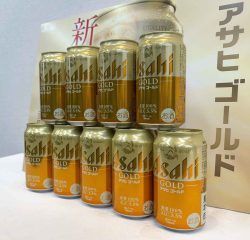
Workers load a truck with oranges on a farm in Limeira January 13, 2012.
12:39 JST, June 2, 2024
Tokyo, June 2 (Jiji Press) — An unprecedented orange juice crisis is hitting consumers in Japan due to supply shortages caused by natural disasters and a fruit tree disease in orange-producing countries.
Supply shortages have forced many Japanese makers to suspend sales of orange juice products.
In addition to the supply shortages, the yen’s depreciation is also blamed for the recent surge in orange juice prices in Japan, which relies almost entirely on imported orange juice.
The average import price of frozen concentrated orange juice shot up from ¥293 per liter in 2021 to ¥550 in 2023 and ¥706 in January-March 2024, according to estimates based on the Japanese Finance Ministry’s trade statistics.
The upward momentum in orange juice prices shows no signs of abating. On the U.S. Intercontinental Exchange, the key frozen concentrated orange juice futures contract hit an all-time high in May.
The current orange juice crisis is due mainly to drought, torrential rain and a tree disease in Brazil, a major orange producer, as well as extensive hurricane damage in the United States.
Japan’s imports of frozen orange juice plunged from 30.84 million liters in 2020 to 17.70 million liters in 2022. Although imports rose to 37.38 million liters in 2023, orange juice remains in short supply after import slumps in 2021 and 2022.
In the current supply crisis, major beverage maker Asahi Soft Drinks Co. partially stopped selling orange juice products in 2023. Megmilk Snow Brand Co.. has also partially suspended orange juice sales.
Morinaga Milk Industry Co. is slated to stop sales in June or later. “We feel sorry, but it’s difficult to continue sales amid unstable juice supply,” a company official said.
Orange juice prices are “expected to gradually fall,” though depending on the impact of the El Nino weather phenomenon from May to July, said Naohiro Niimura, co-chief of Market Risk Advisory Co., who is familiar with commodity futures trading.
On the other hand, an official of a trading company specializing in fruit juices maintains a cautious view of orange juice prices, saying, “As another season of poor orange harvests seems inevitable in Brazil, we may have to prepare for the possibility that retail prices in 2025 could be even double the current levels.”
Top Articles in Business
-

Prudential Life Insurance Plans to Fully Compensate for Damages Caused by Fraudulent Actions Without Waiting for Third-Party Committee Review
-

Japan, U.S. Name 3 Inaugural Investment Projects; Reached Agreement After Considerable Difficulty
-

Japan’s Major Real Estate Firms Expanding Overseas Businesses to Secure Future Growth, Focusing on Europe, U.S., Asia
-

SoftBank Launches AI Service for Call Centers That Converts Harsh Customer Voices into Softer Voices
-

Green Tea Exports Hit Record High in 2025 Amid Growing Demand, Likely to Be Driving Force Behind Govt Export Target
JN ACCESS RANKING
-

Producer Behind Pop Group XG Arrested for Cocaine Possession
-

Japan PM Takaichi’s Cabinet Resigns en Masse
-

Man Infected with Measles Reportedly Dined at Restaurant in Tokyo Station
-

Israeli Ambassador to Japan Speaks about Japan’s Role in the Reconstruction of Gaza
-

Videos Plagiarized, Reposted with False Subtitles Claiming ‘Ryukyu Belongs to China’; Anti-China False Information Also Posted in Japan




















